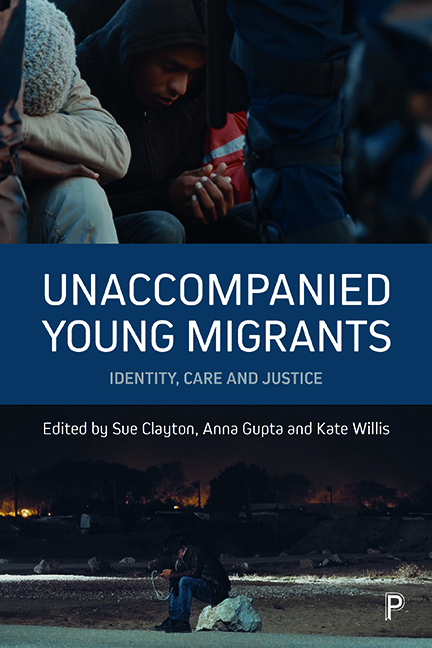eight - A relational approach to unaccompanied minor migration, detention and legal protection in Mexico and the US
Published online by Cambridge University Press: 21 April 2022
Summary
Introduction
This chapter considers the state systems of protection for unaccompanied migrant minors in Mexico and the US. The transits and arrivals of Central American minors – from El Salvador, Guatemala, and Honduras – offer important opportunities for scholars to consider the sociolegal practices of migrant care, especially how legally-accepted but institutionally-unfulfilled claims might signify something more than system failures. Instead this chapter takes the law and state institutions as sites for power relations to play out, rather than as outcomes of legislative power struggles or as resources for mutual claims by states and individuals (Martin, 2011). Our objective is to analyse the distinctive – and perhaps constitutive – tensions that govern state systems of protection for unaccompanied minors, looking to both legal texts and the empirical realities of state activities in Mexico and the US.
US and Mexican legal systems systematically limit migrant minors’ rights and agency, in large part through determinations that children are not full legal subjects. Although migrant minors often make considered decisions as individuals and as parts of a family unit, they are generally not granted legal rights to make decisions regarding their best interests. Writing in the US context, Lauren Heidbrink emphasises a paradox of child agency:
Without a legally recognized caregiver, the law views unaccompanied children as existing alone, though paradoxically still dependent. Without a recognizable parent, the child cannot meaningfully access the state to petition for legal relief … Yet as social actors, migrant children challenge conceptualizations of child dependence and passivity, explicitly through their unauthorized and independent presence in the United States, and implicitly in the ways they move through multiple geographic and institutional sites in search of care, education, or employment. (2013: 138–9)
We follow Heidbrink in emphasising the problem of unaccompanied minor migrants’ agency for systems that attempt to erase it in legal discourse and minimise it in everyday practices. Our analyses highlight the important work that ‘childhood’ does as a category and as a legal resource. Yet we also recognise that the contradiction that Heidbrink examines also constrains the state, because one cannot rid minors of agency by judicial or institutional fiat (Martin, 2011: 478).
- Type
- Chapter
- Information
- Unaccompanied Young MigrantsIdentity, Care and Justice, pp. 211 - 234Publisher: Bristol University PressPrint publication year: 2019

